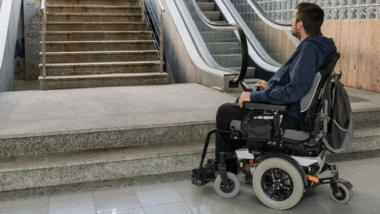A House of Lords committee has heard expert evidence denouncing Kim Leadbeater’s assisted suicide Bill.
Following last month’s debates on assisted suicide, Peers unanimously agreed to set up a special Select Committee to hear evidence from experts before the Bill goes any further. Evidence was heard on Wednesday and Thursday this week, with two more days scheduled next week.
The Select Committee is required to report back by 7 November, at which point Peers will begin debating amendments to the Bill in a ‘Committee of the Whole House’. With the Bill’s numerous flaws and unanswered questions, this stage could begin as soon as 14 November, and could last for months.
Health sector ‘in crisis’
The Committee heard from medical experts including the President of the Royal College of Physicians, Professor Mumtaz Patel. She said she has had end-of-life conversations with patients in corridors due to the pressures on the NHS, and that lack of adequate care could cause people to consider assisted suicide out of “desperation”.
Dr Geoghegan, Head of Policy and Research at the British Association of Social Workers, said social care in the UK is “in crisis” and agreed that people who would not ordinarily have considered assisted suicide may choose it because they are not getting the support they need.
Royal College of General Practitioners’ Dr Michael Mulholland, told the panel that assisted suicide is “against everything that I have been trained in”, which is to provide support and good palliative care.“It is morally nonsensical to advocate for greater support for suicide prevention while simultaneously spearheading the campaign to legislate for suicide to be provided by the National Health Service on behalf of the state.”
Dr Michael Mulholland, Honorary Secretary at the Royal College of General Practitioners, says assisted suicide goes against everything he has been trained in. pic.twitter.com/zo2vIY9Y8c
— The Christian Institute (@christianorguk) October 22, 2025
And the Royal College of Psychiatrists’ representative Dr Annabel Price reiterated the College’s concerns about consent procedures in the Bill, and again stated that the organisation “could not support the bill”.
Suicide
Judge Thomas Teague, former Chief Coroner for England and Wales, said that assisted deaths are, “in law and in reality, deaths by suicide”.
He warned that not requiring a coroner to investigate assisted suicide deaths would increase the risk of coercion and deception.
When Baroness Hayter questioned him on whether people have an “absolute right” to commit suicide, Teague emphatically rejected the idea, saying that the law does not condone suicide.
He explained: “that’s why we have suicide prevention measures” and added that is why “to this day, it is still a serious offence to assist in a suicide”.
"No, no, NO!"
Judge Thomas Teague emphatically rejects the idea that people have an "absolute right" to commit suicide.
He said the law does not condone suicide and "that's why we have suicide prevention measures". pic.twitter.com/sf2FqqyHYa
— The Christian Institute (@christianorguk) October 23, 2025
‘Morally nonsensical’
The Committee heard from the Bill’s sponsor Kim Leadbeater, who, when challenged on the dropping of her ‘ultimate safeguard’ of a high court judge, said that a judge was not the “most patient-centred approach”.
She has been accused of hypocrisy, after she attended an event focussing on suicide prevention last week and called it a “powerful reminder of the need for continued work on suicide prevention”.
Writing for The Critic, Adam James Pollock commented: “It is morally nonsensical to advocate for greater support for suicide prevention while simultaneously spearheading the campaign to legislate for suicide to be provided by the National Health Service on behalf of the state.”
He also noted that Professor Sir Louis Appleby, the Government’s lead advisor on suicide prevention, “has highlighted how legalising assisted suicide undermines suicide prevention as a whole, as the main goal of the Government’s mental health services is to prevent people from taking their own lives.
“Such services simply cannot be squared with a Government whose laws simultaneously encourage the provision of suicide to others.”
Pressure
Lord Falconer, sponsor of the Bill in the Lords, assured the Committee that people with learning disabilities and autism, who are classified as vulnerable adults, would be able to choose an assisted suicide if they were eligible, and would be assisted in making that decision.
Learning disabilities? Autistic? Downs Syndrome? Don't worry you too can have an assisted death according to Lord Falconer https://t.co/2irbsFTRqX pic.twitter.com/j6ZBPsR4Cr
— Nikki da Costa (@nmdacosta) October 22, 2025
When questioned, all of the witnesses admitted they had not received training on “pressure” that the assisted suicide Bill requires, and the lack of its definition was pointed out.
Poll: Pressure mounts against assisted suicide in Scotland


